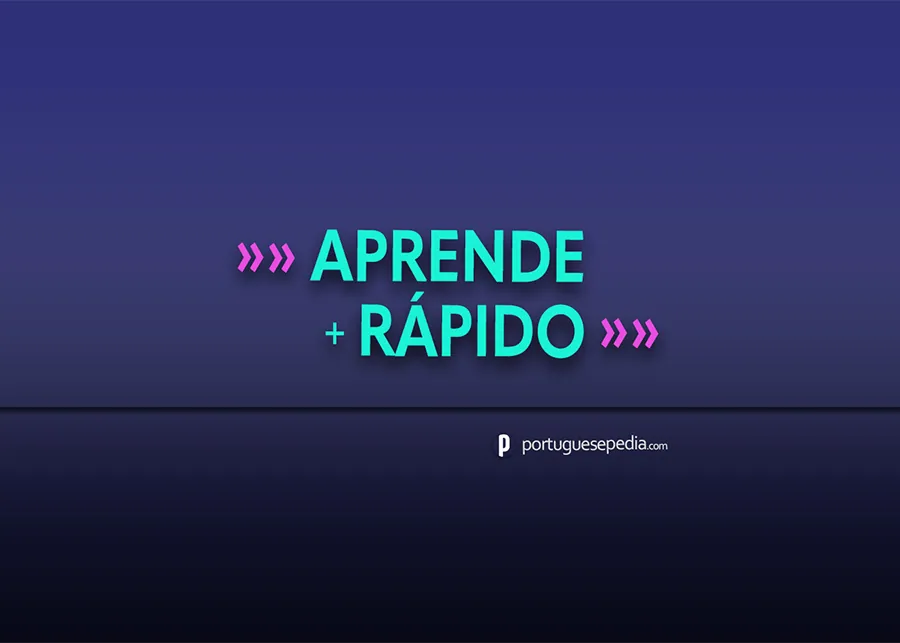
Learn Portuguese Faster and Easier with These Simple Tips
Learning a new language can be an exciting and rewarding experience. If you’ve committed to learning Portuguese, you’re in for a treat! As one of the most widely spoken languages in the world, Portuguese opens up a world of opportunities for travel, business, and cultural exploration.
In this article, I will share a few valuable language tips to help you learn Portuguese faster and more efficiently. By incorporating these tips into your language learning routine, you’ll be well on your way toward fluency.
Immerse Yourself in the Language
One of the most effective ways to learn any language is through immersion. Surround yourself with Portuguese as much as possible.
Watch Portuguese TV shows, listen to Portuguese podcasts, follow YouTube channels for Portuguese language learners, and seek out opportunities to practice speaking Portuguese with native speakers.
Immersion implies continuous exposure to your target language, which is tantamount to consistent practice. By immersing yourself in the language, you’ll progress faster and feel motivated to keep it up.
Make Use of Language Learning Apps
Developments in technology made language learning more accessible than ever. While Duolingo is a popular app, it only offers Brazilian Portuguese. (Learn more about the differences between Brazilian and European Portuguese.)
Memrise and Drops are two Duolingo alternatives supporting European Portuguese. Each of them offers interactive exercises, vocabulary practice, and gamified learning experiences. Make it a habit to spend a few minutes each day using these apps to reinforce your language skills and track your progress.
Also, take a look at Tandem and HelloTalk to find a language exchange partner. If you are looking for Portuguese language tutors, then you will find platforms like Italki or Verbling very helpful.
Last but not least, if you are serious about learning European Portuguese, consider investing in my online courses and short stories.
Create a Study Routine
When it comes to language learning, consistent practice is key. Establish a study routine that works for you and stick to it. Allocate dedicated time each day to practicing Portuguese.
Whether it’s 30 minutes or an hour, having a structured routine will help you make steady progress. Remember, more important than setting goals is to succeed in creating and consolidating your practice routine.
Tap Into What You Already Know
Contrary to what you may think, you are not starting your language-learning journey from ground zero. In fact, chances are that you already possess a wide Portuguese vocab.
How come?
See, if you are well acquainted with English, you already know hundreds of Portuguese words! – all thanks to English-Portuguese cognates. Let me explain.
Having a common root – Latin or Greek for the most part – cognates are words that look similar in both languages and share the same meaning. There’s an abundance of cognate words between English and Portuguese and you should make the best of it.
Learning how to use your pre-existent knowledge to exponentially increase your Portuguese vocab (in no time) is a must.
Practice Speaking and Listening Skills
Learning a language goes beyond memorizing words and grammar rules. You need to wilfully engage in developing your communication skills through listening and speaking practice.
Find language exchange partners or join online language communities to practice speaking and listening in Portuguese. Engage in conversations, participate in language meetups, and challenge yourself to think and respond in Portuguese.
The more you expose yourself to real-life conversations, the faster you’ll improve your speaking and listening skills.
Read and Write in Portuguese
Reading and writing are vital components of language learning. Start with simple texts designed for language learners and gradually work your way up to more complex materials. Read books, news articles, blogs, and short stories to expand your vocabulary and improve your comprehension.
Similarly, practice writing in Portuguese by maintaining a journal, writing emails, or even creating social media posts. Don’t be afraid to make mistakes – it’s all part of the learning process.
Seek Out Cultural Immersion
Language and culture go hand in hand. To deepen your understanding of Portuguese, immerse yourself in the culture of Portuguese-speaking countries. Explore their customs, traditions, literature, and music.
Attend cultural events, watch Portuguese movies, try cooking traditional dishes… By embracing the culture, you’ll gain a deeper appreciation for the language and its nuances.

Olá! I'm Pedro and I'm your Portuguese teacher.
Ready to unlock the beauty of European Portuguese? Portuguesepedia is your key! This all-in-one platform provides a wealth of learning resources, from bite-sized video lessons to immersive idiomatic dips. Perfect your pronunciation and aural comprehension with listening drills and solidify your grammar with in-depth articles. Start your Portuguese journey today!
Share this article
Get my guide "Key Strategies to Learn Portuguese" for FREE.
